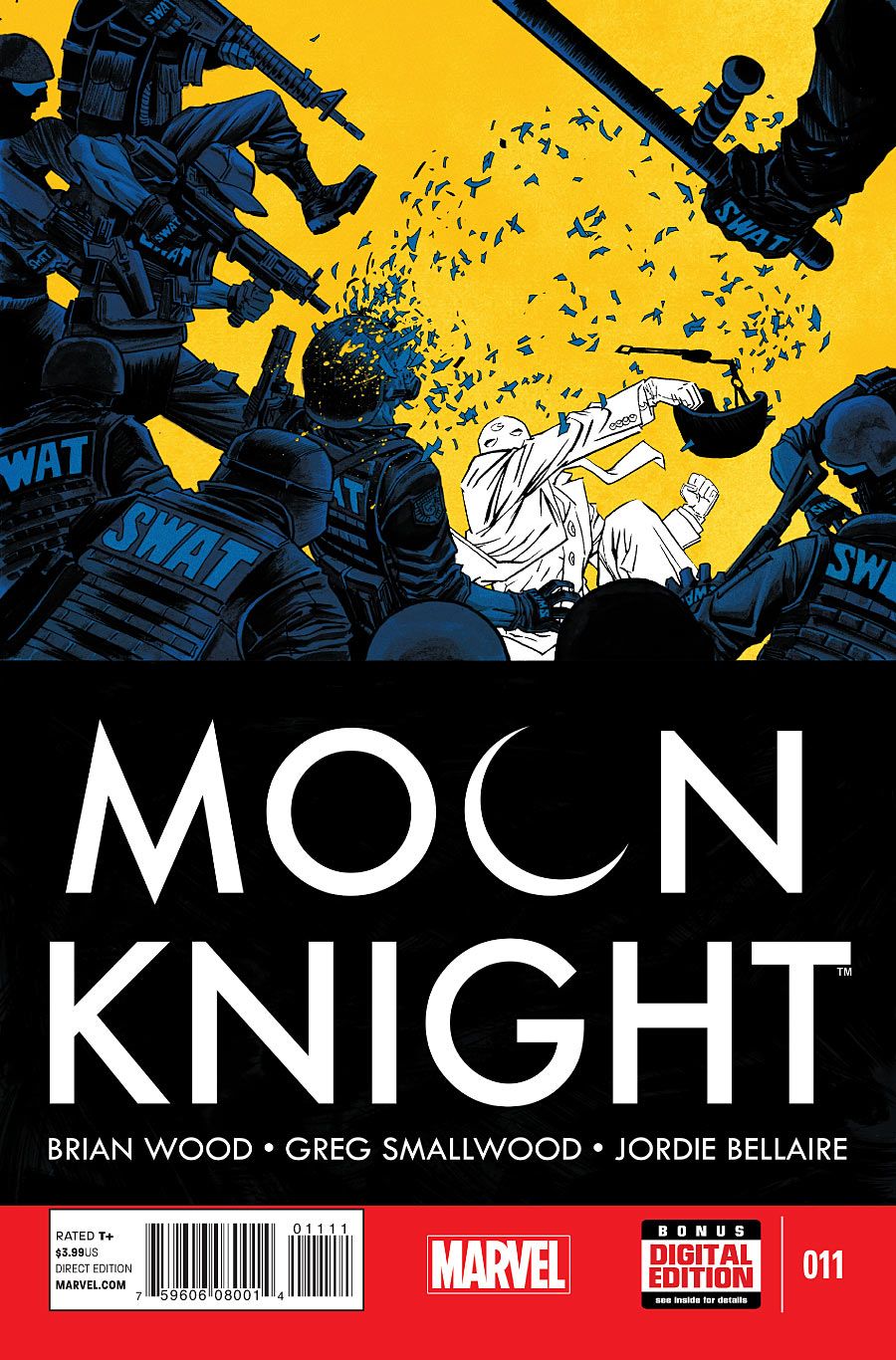In "Moon Knight" #11, Brian Wood and Greg Smallwood show Marc Spector without his civil rights and the aid of his patron god. The torture and unsanctioned "medical" experiments keep the reader on edge through the entire issue, and Smallwood and Bellaire are able to make the scenes visually pleasing without downplaying the gravity or horror.
It's impressive how quickly Smallwood gets down to business. He doesn't squander the suspense and his fifteen panels per page alternate bright red violence with antiseptic and faceless white blandness. Although Bellaire usually skews towards warm palettes, her choices of cool red and bluish white are perfect here. The emphasis provided by the red/white/black contrast is strong without being distracting. Smallwood's wordless panels set out the facts of Spector's days and nights with maximum efficiency. It's so much better than a voiceover with Spector's narration, which would be a more conventional opening sequence.
"Moon Knight" #11 works almost as stand-alone issue. Spector is cut off from his usual resources. He faces a crueler, harsher antagonist than the by-the-book NYPD or even the selfishly motivated villains of the first arc. Wood's storytelling is very similar to Ellis' approach in the first arc. The pacing is fast and efficient and there's lots of action. Both authors have touched upon themes of insanity, free will, vigilante moral codes and justice, etc., but neither of them has really gone into the deep end with the heavy stuff. Both have kept it light with only some occasional dips into psychology and sociology. Despite the tipping of the stakes against Spector, "Moon Knight" continues to lean more towards the concrete than the contemplative.
On the other hand, Wood is exploring a different kind of horror than the one Ellis advanced. His take on "Moon Knight" is less introverted and more about how a man fits into a city or a society, and the punishments for someone who colors outside the lines. Instead of Ellis' eerie and dreamlike mysticism, Wood explores the abuse of power. Spector's sanity seems solid against the moral chaos of his captivity.
Wood's horror is more concrete than supernatural, rooted in the moral ambiguity and dehumanization of institutions and political objectives. Smallwood's clean art softens the effect of Guantanamo Bay-like torture somewhat, but Wood's points about inhumanity and due process are clear. Although Khonshu is a god, Wood's take on the relationship between Spector and his god is treated like a soap opera breakup rather than a philosophical or religious crisis. Spector must simply cajole the god back to his side.
"Rendered" is an excellent title, referring to both the violence of the Spector's imprisonment and the way Spector is experiencing who he is in the face of cataclysmic loss.
In the final few pages, Bellaire shows wonderful restraint in leaving some of Smallwood's panels colorless, letting his charcoal-like shading and elegant compositions speak for themselves. While it is foreshadowed that Spector's prison isn't normal, Smallwood and Bellaire's artwork make the last page a stunning experience. Even the way that the panels section the page feels daring and right. "Moon Knight" continues to be a successful relaunch under Wood, Smallwood and Bellaire's care.

